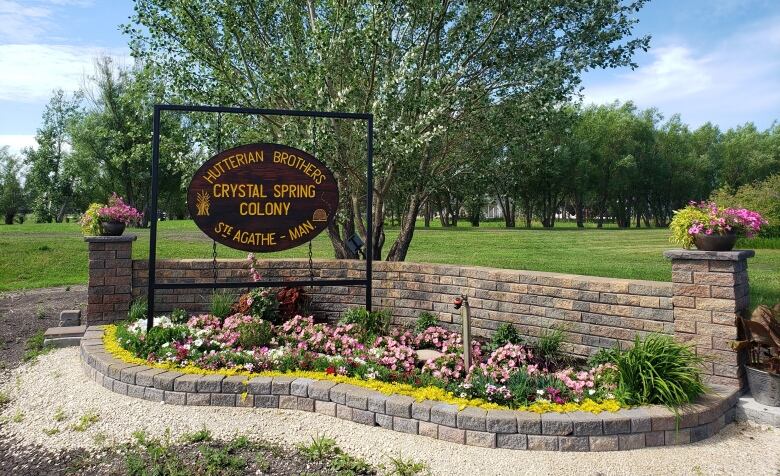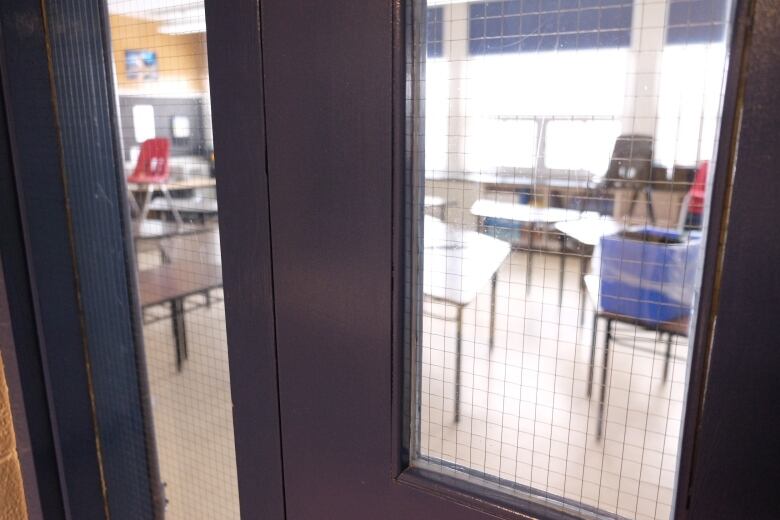One year into the pandemic, numerous groups, often from marginalized communities, have been perceived as endangering public health, even if they’ve done nothing wrong.

Hutterites felt the glare of strangers when they ventured beyond their colonies.
It didn’t matter if they had no trace of COVID-19. Their colonies were branded last summer as Manitoba’s hotspot for virus infection. Some Hutterites were confronted by strangers while in public, or even refused service at businesses.
Hutterites — Anabaptists who live communally — wondered if the public shaming would impact farming, their livelihood.
“If their community gets identified as having cases, it might impact their ability to get out and actually collect the harvest,” said Ian Kleinsasser, a school teacher and historian from Crystal Spring Hutterite Colony, south of Winnipeg.
“That was one of our biggest concerns around harvest time, that COVID would somehow put an end to our harvest.”
The Hutterites were proactive, Kleinsasser said. They consulted with public health and ordered all their drivers to stay in their combines when on the fields, no exceptions.

Thankfully, he said, they weren’t impeded from working with their neighbours during harvest season.
In time, COVID-19 cases on colonies dropped and the stigma attached to Hutterites dissipated. But there was always another target.
One year into the pandemic, the public discourse on the global health crisis has focused on infections and deaths, lockdowns and closures, but it was also a year tarnished by stigmatization.
Treated like a pariah
Numerous groups, often from marginalized communities, have been perceived as endangering public health, even if they’ve done nothing wrong.
“People were under tremendous amount of stress, and yes, I guess visible minorities are easy to blame at a time like this,” Kleinsasser said.
Public health officials tried to caution Manitobans against such behaviour, but at the same time various targets to blame were presented, said Christopher Fries, a health sociologist at the University of Manitoba.
“Health promoters have had to walk this really strange line because they’ve had to actually define certain behaviours as unhealthy and therefore deviant.
“But the thing is … I think [that] opens the door to stigmatization,” he said.

The targets of derision have changed rapidly.
First, it was people of Chinese descent. The novel coronavirus that causes COVID-19 was first found in China, which was reason enough for some people to level scorn.
Filipinos were targeted, too. Some of Manitoba’s early coronavirus carriers flew in from the Philippines.
Truckers have been refused access to restrooms while doing their jobs.
Hutterites threatened to file a human rights complaint if the province didn’t stop identifying the COVID-19 cases reported on their colonies, unless there was a pressing health reason to do so.
In between, bar-hopping by young people — a cohort often employed in essential jobs — was blamed for spreading COVID-19 early in the pandemic’s second wave. Some even disparaged the first people to die of the virus, suggesting “underlying medical conditions” were justification for their deaths.
In this pandemic, the tendency of people to scapegoat was borne out of a feeling they were doing their part by staying home, but others were not, said RJ Leland, an assistant professor of moral philosophy at the U of M.
“The more powerful the demands are for people to pitch in on behalf of the common good and the more serious the threat … I think the more natural it is for people to be really frustrated when they see other folks not pitching in,” Leland said.
Even so, he said it’s no excuse for the few to denigrate an entire demographic of people.
Public display of racism
One driver missed that message in the pandemic’s early days.
Hong Su remembers clearly the large sign in the back window of the blue truck driving down Winnipeg’s Main Street last March.
“F–k off China,” it said.
“When I saw that slogan, I got very angry,” said Su, a financial advisor. “I don’t know why he put that sign up and showed it while driving in the city.
“I don’t know how to stop him, I don’t know how to talk to him, so I called the police,” said Su, who gave police the driver’s licence plate number.
It was traced to an out-of-town driver and the matter was referred to the RCMP. They say charges weren’t laid because it appears no crime was committed, though they said the sign was a “poor choice.”
Around the same time, he experienced racism up-close when he overheard a man at a vehicle repair shop condemning Chinese people for his woes, he said.
Manitoba Chief Provincial Public Health Officer Dr. Brent Roussin has routinely cautioned against the dangers of such stigma, which he warned may prevent people from getting tested for COVID-19 or revealing their personal interactions to contact tracers.
Highlighting Hutterite cases ‘clearly a mistake’
Psychologist Katherine Starzyk said the province’s messaging could have gone further.
“There wasn’t enough communication about how we should treat each other during the pandemic,” the University of Manitoba professor said.
Some people are more at risk of contracting the virus through no fault of their own, Starzyk says.
COVID-19 flourishes in close quarters, such as the intergenerational homes newcomers tend to live in, or in communal settings like Hutterite colonies. Crowded and inadequate housing on reserves has also been blamed for high case numbers in some First Nations communities in Manitoba.
“I think the government could just talk a little bit about giving people the benefit of the doubt across these groups,” Starzyk said. “We may look different in how we dress or how we live our lives, but fundamentally we’re not that different.”
Public health officials occasionally erred by revealing too much information about certain groups of people, she says.

In the case of Hutterites, the province should have identified an area of geographic concern, rather than singling out a religious minority.
The province stopped attributing new cases to Hutterite colonies after the threat of a human rights complaint.
“Highlighting those groups was clearly a mistake,” she said. “It just makes those people a target.”
Michelle Driedger, a U of M professor in community health sciences who specializes in public health communication, says public health messaging hasn’t been intended to shame, but the messages were twisted by others.
The government undermined the efforts of its own health officials by shaming alleged rule breakers, such as the premier naming a small-town hotel fined for an alleged breach of public health orders, she said.
“If you break the public health rules, there’s a good chance you might get your name mentioned on TV,” Premier Brian Pallister said last November.
The business Pallister named is planning to appeal the fine.
However, the public health department has navigated the tension between citizens’ rights to know and an individual’s right to privacy deftly, Driedger said.
Health officials owned up to their mistakes, such as revealing the school name, grade, classroom and bus route of the first student to contract COVID-19, Driedger said. Facing pushback, the province reneged on its promise to reveal such detailed information of student infections.

There’s “a tension that public health constantly navigates” between providing information that is sufficiently transparent and not violating privacy, Driedger said.
“Not naming … individuals or having certain levels of protection — that’s one way of helping to offset some of that.”
Earlier this month, Roussin acknowledged the risk of stigmatization while divulging COVID-19 cases by demographic group, which showed people of colour were more likely to be infected.
The numbers alone don’t provide context, he said. There are systemic factors at play, such as high-risk jobs and inadequate housing.
“This is very important information to collect,” Roussin said, but “we all knew that we had to be very clear that this didn’t further stigmatize groups.”
WATCH | Stigma a challenge when releasing race-based data on COVID-19:

Dr. Brent Roussin, Manitoba’s chief public health officer, said Monday race-based data on COVID-19 is important to gather and share, but stressed that systemic factors, not race, are what make individuals more susceptible. 0:55
One Winnipeg grocery store wore the repercussions of stigmatization for months.
Business at Gill’s Supermarket on Keewatin Street dropped precipitously last summer when a rumour circulated that several employees got COVID-19.
It was completely false, but the rumour hung on the grocery like a scarlet letter. Sales fell by 30 per cent.
Some of owner Jagjit Gill’s regulars shopped elsewhere for months.
“People started saying that it’s been too long since they’ve been to the store,” Gill said.
The return of his customers coincided with the pandemic’s second wave, when Manitoba was overwhelmed with sometimes hundreds of new COVID-19 cases a day.
The spike was remarkable — it took seven months for Manitoba to record its first 3,000 cases, and just over two weeks to record the next 3,000.
Gill said some of his customers now either know somebody with the virus, or were infected themselves.
“Everybody was scared back then, but if we compare to now — now, nobody cares about it,” he said.
Vaccine refusers could be targeted: ethicist
The stigma may have dissipated in some corners, but U of M ethicist Leland expects it to re-emerge as vaccinations ramp up — and some will be reluctant or refuse the shot.
“You’re going to see a lot of these same dynamics play out,” he said.
It doesn’t have to be that way, he said. People getting inoculated should treat others with respect, rather than ostracizing those who don’t.
“Whatever you think of their beliefs and how rational or irrational they are, treating those people like garbage isn’t going to make them more likely to consider getting that shot.”
The Hutterites responded to stigma they faced last year by helping other groups in need.
After hearing a plea for volunteers, Kleinsasser got in touch with management at the Saul and Claribel Simkin Centre, a Winnipeg personal care home for Jewish seniors, which was hit by a COVID-19 outbreak.
That led to a group of Hutterites — working apart in their own homes, due to pandemic restrictions — sewing 500 new isolation gowns.

The gesture was a way for Hutterites to give back, Kleinsasser said.
“I kept thinking that when you’re overwhelmed by darkness, the best way to overcome it is to put on a light.”
